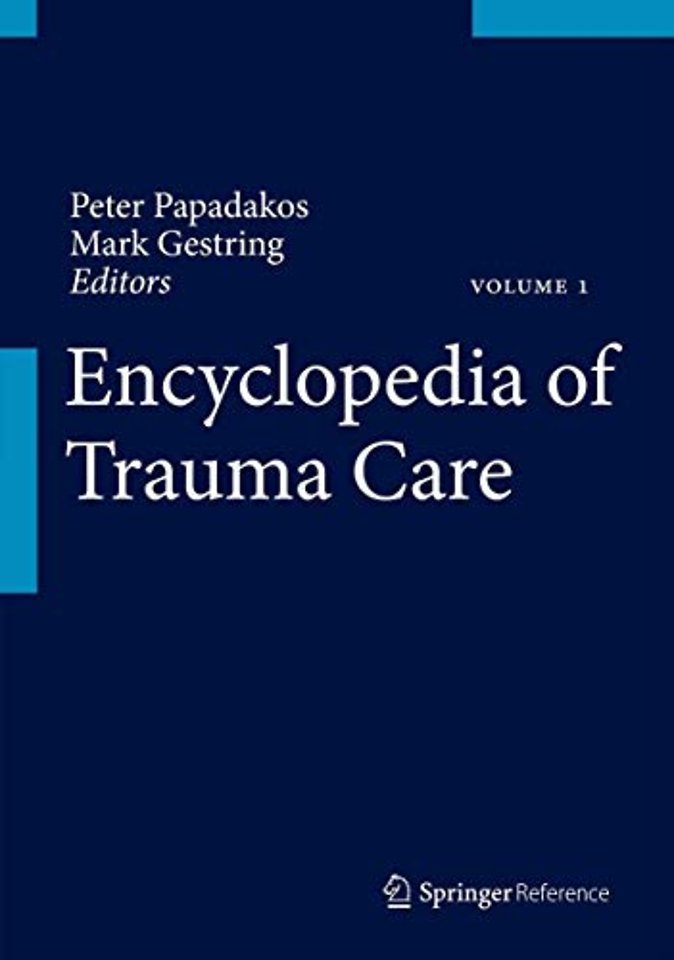Encyclopedia of Trauma Care
Samenvatting
This encyclopedia is an authoritative compilation of practical information on major topics in trauma management. Its encyclopedic format will allow the reader to rapidly find up-to-date information on a specific topic of interest. The book is organized in an organ-based manner for ease of use when a practitioner is confronted with a particular injury. Each chapter takes the form of a clearly structured review of the subject in question and includes informative illustrations and tables as well as lists of classic references. In addition to the full range of organ-specific injuries, a number of important further topics are covered, including critical care of the trauma patient, trauma system organization, mass injury scenarios, the impact of new technologies, complications in trauma care, and ethical issues. All of the authors are leading experts, and the encyclopedia will provide an excellent source of information for both basic and clinical scientists and trainees in various fields.
Specificaties
Inhoudsopgave
Complications in trauma care: Deep vein thrombosis and pulmonary embolus. Infection. Missed injuries. Abdominal compartment syndrome.- Critical Care for the trauma patient: Hemodynamic monitoring. Invasive versus non-invasive modalities. Shock. Respiratory insufficiency. Ventilator modalities. Cardiac failure. Cardiac support modalities. Sepsis and multi-system organ dysfunction. Renal failure. Renal support modalities. Nutritional support in the trauma patient. Transfusion therapy. Pain control and sedation. ICU imaging.

